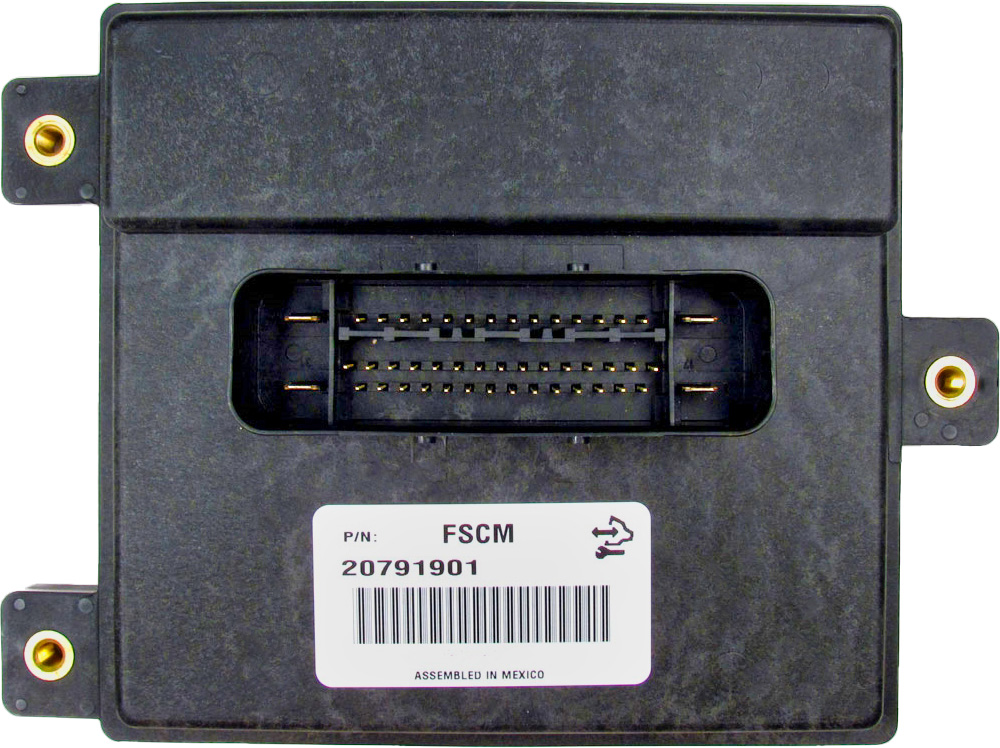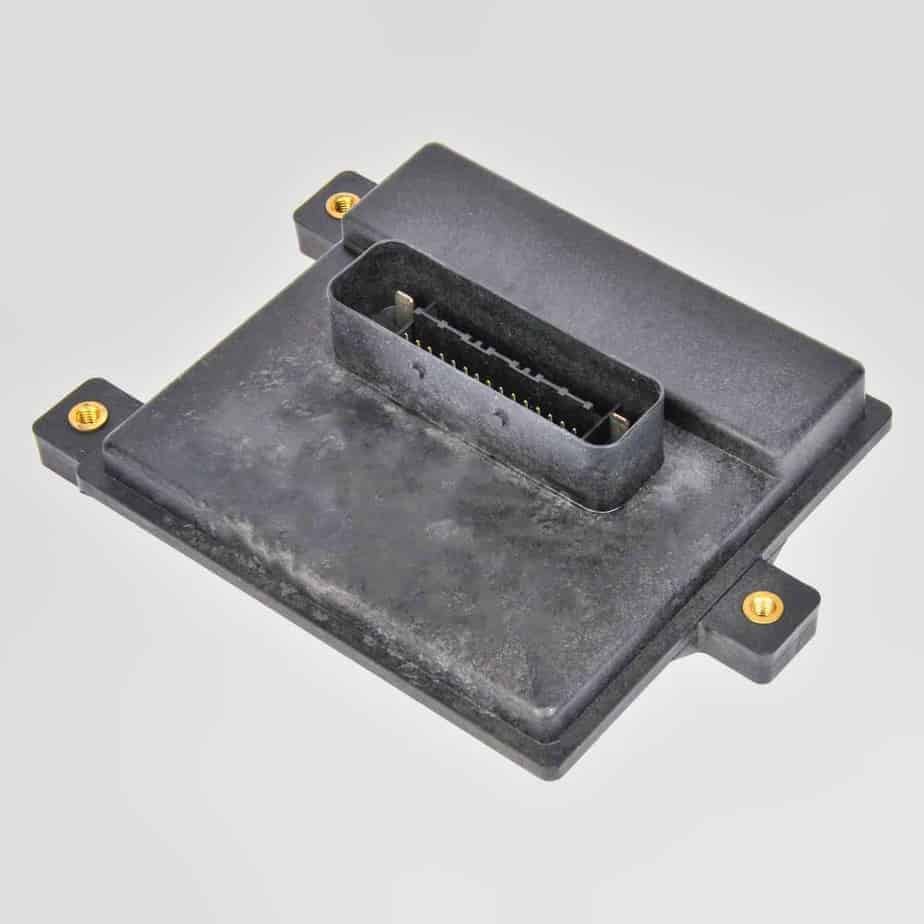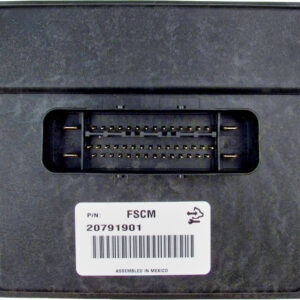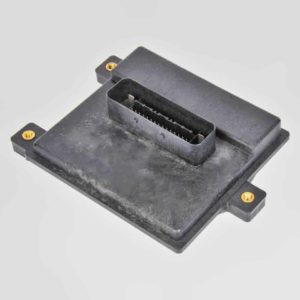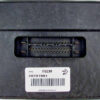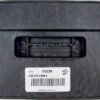Restore Your Vehicle’s Performance with a VIN-Programmed FSCM
As a technician with over two decades of experience under the hood, I’ve seen countless vehicles sidelined by fuel delivery issues. More often than you’d think, the culprit isn’t the fuel pump itself, but this critical component: the Fuel System Control Module (FSCM). If your Chevrolet, GMC, Cadillac, or Buick is experiencing frustrating symptoms like long crank times, stalling, or a check engine light with codes like P069E, you’ve come to the right place for a reliable, permanent fix.
This isn’t just a replacement part; it’s a complete solution. We take a genuine OEM-quality FSCM and program it with the latest GM-certified software, specifically matched to your vehicle’s VIN. This crucial step, which we handle before shipping, means you can skip the expensive trip to the dealership for programming. You get a part that’s truly plug-and-play, designed to restore factory performance and efficiency right out of the box. This is the smart, straightforward way to get your vehicle back on the road with confidence.
A Technician’s Notebook: The Ghost in the Machine
I remember a 2011 Silverado 1500 that came into my bay with a classic complaint: it would randomly stall at stoplights and hesitate badly under acceleration. The owner had already replaced the fuel pump, convinced it was failing, but the problem persisted. He was frustrated and out a few hundred dollars. After hooking up my scan tool, I saw no fuel pump codes, but I did see a history of U0109 (Lost Communication with Fuel Pump Control Module). Instead of just throwing another part at it, I monitored the FSCM’s voltage command to the pump. It was erratic, dropping out intermittently. The module, mounted on the frame rail, had succumbed to years of vibration and moisture. We installed a new, pre-programmed FSCM, and the truck ran perfectly. It’s a textbook case of why proper diagnosis matters and how this module is often the real root cause.
Is Your Vehicle Showing These Symptoms?
A failing FSCM can mimic a bad fuel pump, leading to costly misdiagnosis. Before you consider dropping the fuel tank, check if your vehicle is exhibiting these common signs of a faulty Programmed Fuel System Control Module:
- ✔ Engine cranks but refuses to start
- ✔ Stalling, especially when coming to a stop or under load
- ✔ Severe hesitation or sputtering during acceleration
- ✔ “Reduced Engine Power” message on the dashboard
- ✔ An active Check Engine Light with common diagnostic trouble codes (DTCs) such as P069E, P0230, P0627, or U0109
- ✔ Inconsistent fuel pressure readings
A Straightforward Guide to Installation
Replacing the FSCM is a job most DIY enthusiasts can handle with basic tools. While the exact location varies by model (e.g., on the frame rail for trucks, in the trunk/quarter panel for sedans), the process is generally similar.
- Safety First: Disconnect the negative terminal from your vehicle’s battery to prevent any electrical shorts.
- Locate the Module: Find the old FSCM. On a 2012 Impala, it’s typically in the trunk area, behind the right-hand quarter panel trim. On Silverado/Sierra trucks, it’s on the driver’s side frame rail, often near the spare tire.
- Disconnect and Remove: Carefully unplug the electrical connectors. Note their orientation. Then, unbolt the module from its mounting location. These bolts are often exposed to the elements, so a little penetrating oil can be helpful.
- Install the New Module: Bolt your new, pre-programmed FSCM into place. Ensure it is securely fastened to prevent issues from vibration.
- Reconnect Everything: Plug the electrical connectors firmly into the new module. Reconnect the negative battery terminal.
- Final Check: Turn the key to the ‘On’ position for a few seconds to allow the system to prime, then start the engine. Your vehicle should now run smoothly with stable fuel delivery.
Verified Vehicle Compatibility
This module, part number 20827745, is a direct replacement for a wide range of GM vehicles and interchanges with part numbers 20791901, 20877116, and 20850927. Please verify your vehicle’s specific location and options below:
- Chevrolet Avalanche 1500 (2010-2012)
- Chevrolet Captiva Sport (2012)
- Chevrolet Colorado (2010-2012)
- Chevrolet Express 1500 Van (2010-2012)
- Chevrolet Impala (2012)
- Chevrolet Silverado 1500 (2010-2012)
- Chevrolet Suburban 1500 (2010-2012)
- Chevrolet Tahoe (2010-2012)
- Chevrolet Traverse (2010-2012)
- GMC Acadia (2010-2012)
- GMC Canyon (2010-2012)
- GMC Savana 1500 Van (2010-2012)
- GMC Sierra 1500 / Denali 1500 (2010-2012)
- GMC Yukon / Yukon XL 1500 (2010-2012)
- Cadillac CTS (2010-2012)
- Cadillac Escalade / ESV / EXT (2010-2012)
- Buick Enclave (2010-2012)
- Buick LaCrosse (2010-2012)
- Buick Regal (2011-2012)
- Hummer H3 (2010)
- Saturn Outlook (2010)
- Saturn Vue (2010)
Note: This is a comprehensive list. Always confirm your specific part number or provide your VIN to ensure 100% compatibility.
Frequently Asked Questions
Frequently Asked Questions
Why do I need to provide my VIN?
Your VIN is essential for us to program the module with the correct, most up-to-date GM software for your vehicle’s specific configuration. This ensures perfect compatibility and function without requiring a trip to the dealer.
Is this part difficult to install?
No, this is a very DIY-friendly part. It’s a direct plug-and-play replacement. As long as you can access the module’s location and use basic hand tools, you can complete the installation, typically in under an hour.
Will this fix a P069E check engine light code?
Yes, the DTC P069E (Fuel Pump Control Module Requested MIL Illumination) is one of the most common codes indicating a failed FSCM. Replacing the module with this pre-programmed unit is the correct and reliable fix for this code.
What’s the difference between an FSCM and a fuel pump?
The fuel pump is the mechanical pump in the gas tank that moves fuel. The FSCM is the electronic ‘brain’ that tells the fuel pump how fast to run based on engine demand. A bad FSCM can’t control the pump correctly, leading to fuel starvation even if the pump itself is good.
What happens if I install it without programming?
An unprogrammed module will not communicate correctly with your vehicle’s main computer (ECM/PCM), and your vehicle will likely not start or run properly. Our pre-programming service eliminates this problem entirely.
